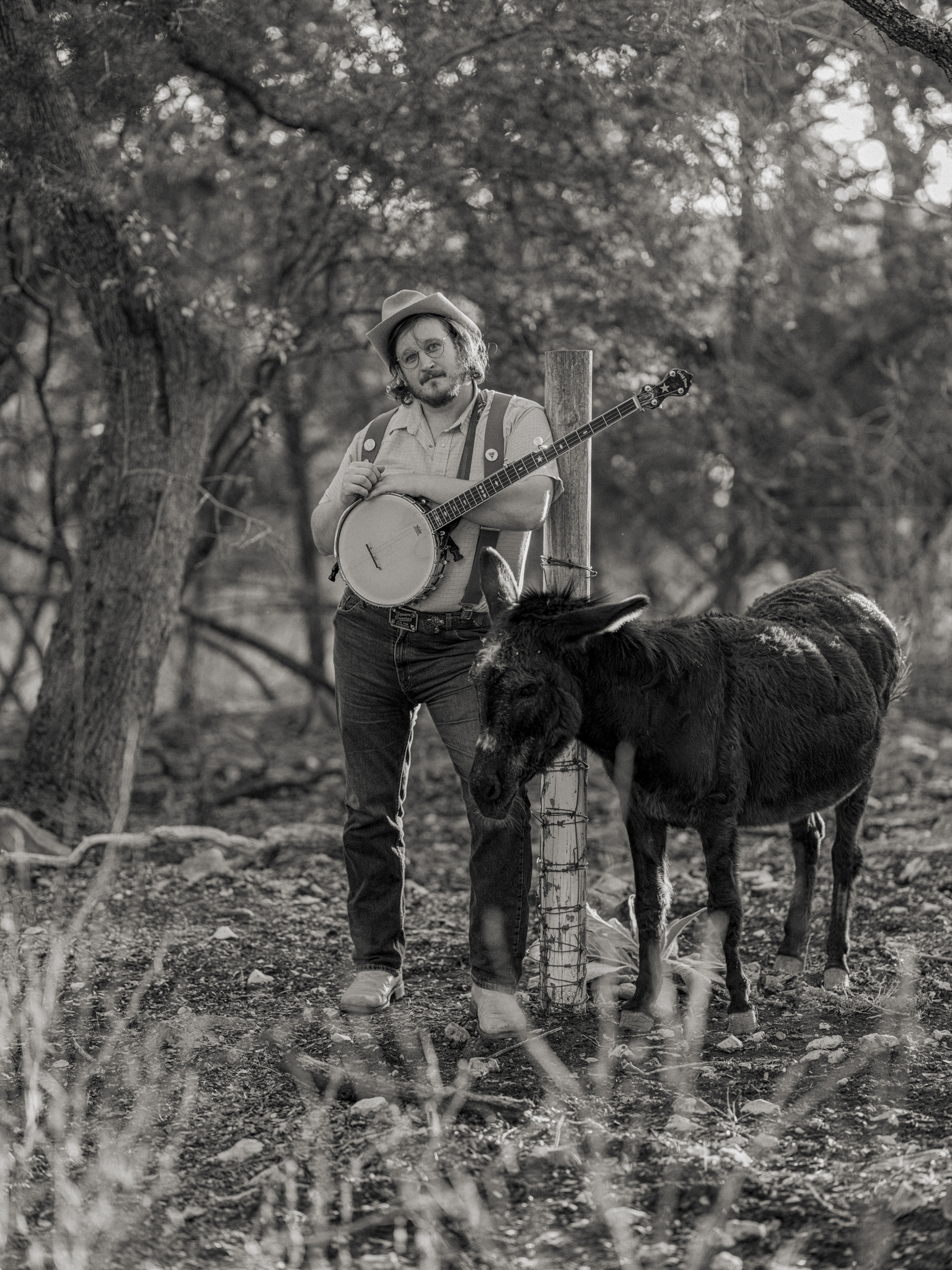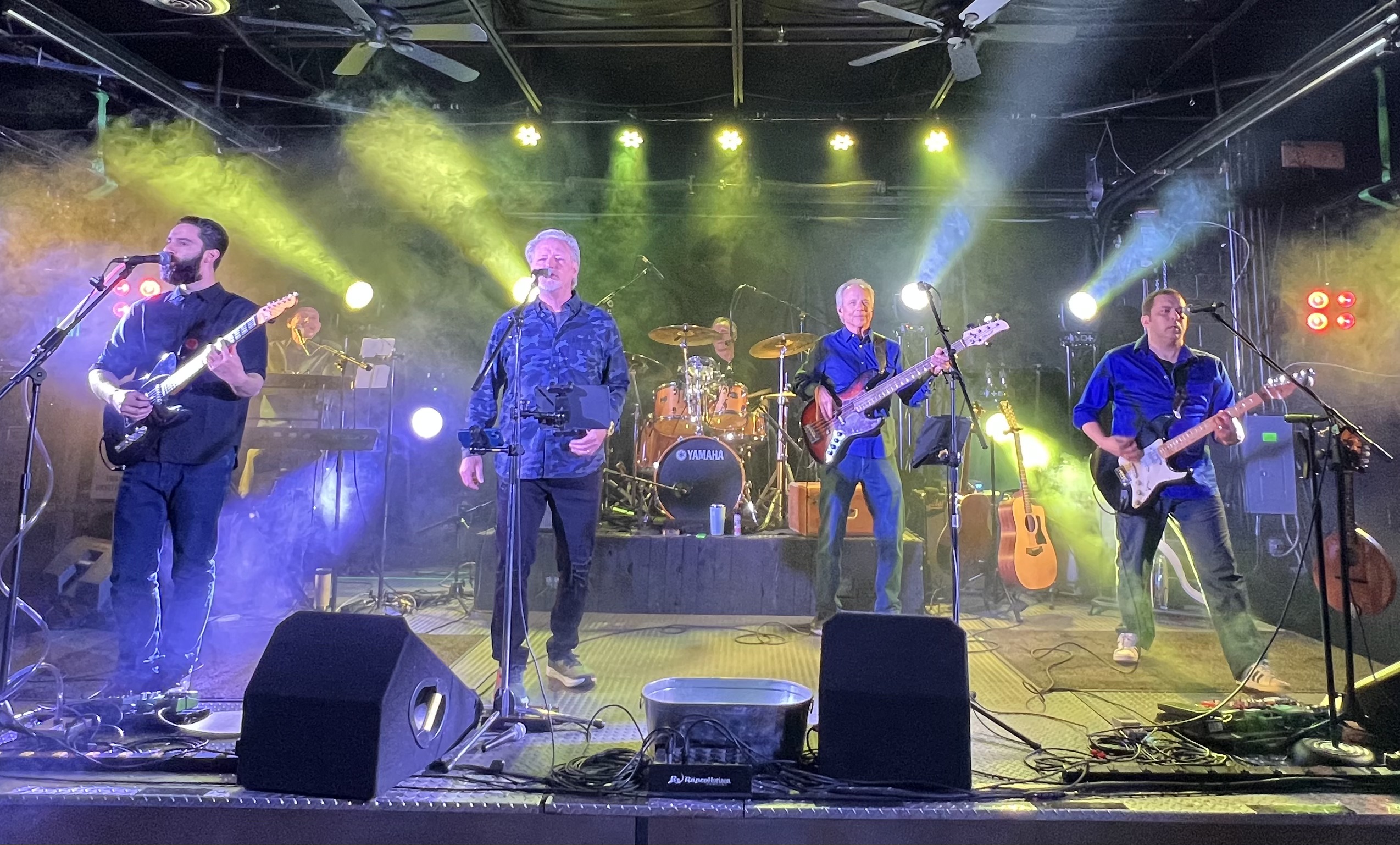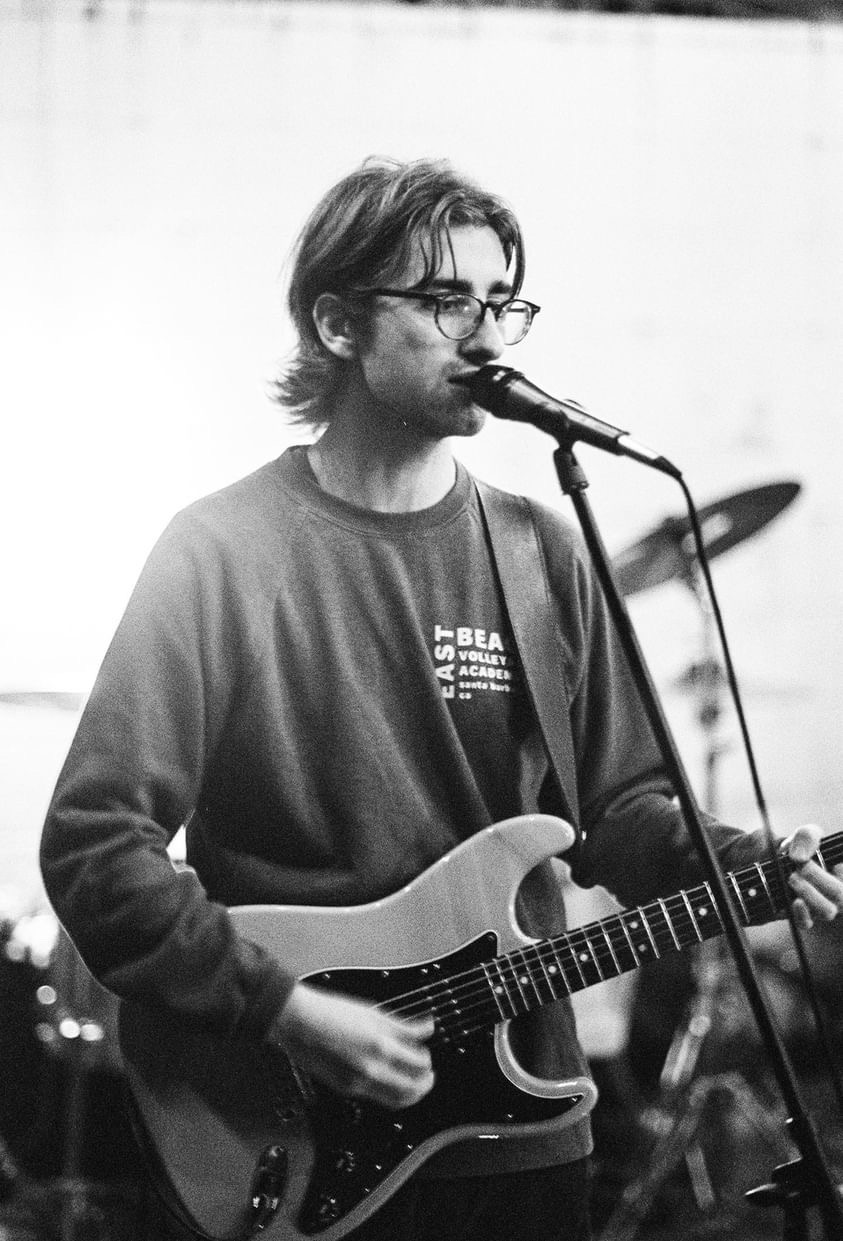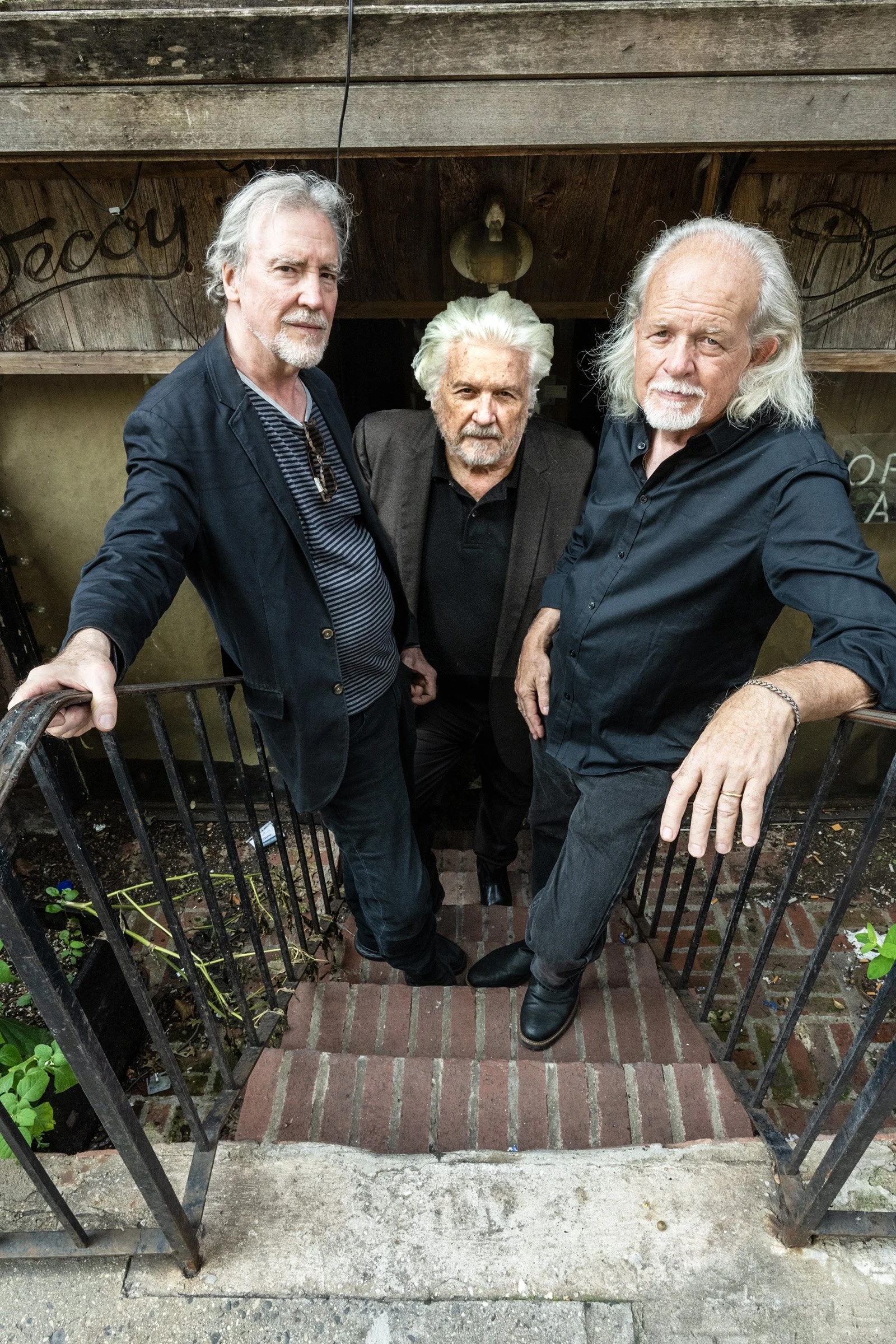
Folksinger Willi Carlisle holds tight the conviction that love is bigger than hate, and no-one is expendable. Carlisle’s music has always been a dance between absurdity, spectacle, and philosophy. On his fourth studio album, Winged Victory, Carlisle returns with his signature blend of traditionally-rooted folk music and kaleidoscope of oddball characters to confer with his core tenets in more overt and provocative ways.
“These songs feel poised on the edge of the apocalypse, or at least at the beginning of a great transformation in America,” Carlisle says. “During this borrowed time, the weirdos, cowboys, and dreamers in these songs dare to love, and often pay for it with blood.” Carlisle delivers Victory as the next chapter in his long-running direct address to the hope that by understanding our collective suffering, we might be free of it. He’s intent on creating art and a well-rounded life in a broken world. The idea began with 2022’s Peculiar, Missouri when Carlisle proclaimed “your heart’s a big tent, everybody gets in.” After gathering together all the world’s weirdos and misfits under the big tent, with 2024’s Critterland, Carlisle let them loose into the world. Now, on Winged Victory, they speak for themselves, unencumbered by social expectations.
Victory, Carlisle’s first self-produced album, will be released June 27 via Signature Sounds. It both indulges several of his wildest dreams and feels like the inevitable sequel to Critterland’s charismatic menagerie of chaos. Though occasionally raunchy, and routinely provocative, Victory is not afraid to make a spectacle for the sake of a point. Victory should be understood as a reflection. It revels in the beauty of tiny, monetarily-worthless moments and things, offering with them a consideration of our innate humanity. To set the stakes of the story, Carlisle opens with a cover of protest song “We Have Fed You All for 1000 Years.” Written by an unidentified Industrial Workers of the World member (IWW) for an early union strike, the song lays out one of the many ways the working class sustains the world.
“I can think of no better way to set the terms of any argument that I'm going to make than, ‘if, blood is the price of your cursed wealth/ by God, we've paid in full,’” Carlisle says, quoting the song. “I love that it’s a voice from time immemorial that is singing out about one of the oldest issues in all of history. These stories are almost always written by the victor, but here is a rare exception–a possibility.”
Carlisle has a knack for delivering a message through absurd scenes. To his eccentric cohort of weirdos and misfits, he adds a donkey named, ‘Winged Victory,’ on the album’s title track. Carlisle thought that to name a donkey a high classical concept like ‘Winged Victory’ seemed so illogical and wonderful at the same time that he bestowed the same name on his album, as well. On “Winged Victory,” Carlisle pits the full force of his convictions against any allegiance to relentless progress at all costs. “They say progress is a fact of earth / that rhetoric’s as dumb as dirt / I don’t want to work a dead-end job / a penny saved a penny lost,” he sings. Instead, Carlisle sings of joyful moments whose incongruity and humanity demand recalibration. “I believe in the impossible / that no-one is expendable.” The romp concludes in a dementia ward where Carlisle is surprised to hear the old folks singing back at him. Long after memories fade, music remains rooted within the human mind.
On previous albums, Carlisle’s delivered big concepts in quick succession, but with Victory he built in what he calls “pressure release valves”: calm, sweet moments of relief. The first of these is the album’s second track, “Wildflowers Growin,’” a gentle reminder to stop and appreciate the world’s small wonders. Elsewhere on the album is Carlisle’s first song about childhood: “Cottonwood Tree,” a sentimental frolic through nostalgia and what it takes to be free. Later, he indulges in 51 seconds of instrumental polka music (“The Cottonwood Polka”) riffing on the melody from “Cottonwood Tree”.
Among the dreams Carlisle realized on the album was the presence of as many types of squeezeboxes as he could — four, this time — and equally four banjos, as well as assorted brass instruments. Carlisle also included his cover of “Beeswing,” a folk song about great and lost love by Richard Thompson; and he recorded two songs he’s carried with him for a long time, “Crying These Cocksucking Tears,” and “Big Butt Billy.”
The first is a song by queer country icon Patrick Haggerty. Haggerty’s music intended to disrupt the status quo. Carlisle’s version of “Cocksucking Tears” is a carefully-calibrated satire, which sounds something like a free-for-all deconstructed psychedelic circus band. Carlisle took on Haggerty’s extraverted lyrics to skewer toxic masculinity and homophobia, and added a verse of his own.
Further playing around with cloying gender norms, Carlisle penned “Big Butt Billy,” the latest installment in his growing catalogue of outlandish tales delivered in lightning-fast rhyming talkin’ blues songs. “Big Butt Billy” is an unapologetically bawdy and funny first-person narration by a trucker discovering his sexuality while ogling a nonbinary server at a road-side diner.
Repeatedly on Victory, Carlisle invites listeners to pause and consider the state of things. To that end, he delivers his sharpest points back-to-back mid album: “Work is Work” and “Sound and Fury.”
“Did you heed the call? Were you led astray? / Work is work, or it wouldn’t pay,” Carlisle sings in “Work as Work.” In it, together with “Sound and Fury,” he imagines grace free from the haints of meaningless production and profit. Then, with the album’s final track —a cover of folk singer Mark Ross’ “Old Bill Pickett” about the legendary Black cowboy — he delivers the clincher: victory comes through sharing our collective histories so we can better understand where we’re from, and where we’re going.
“A good folk music response to the troubles of the First World is saying ‘what are the little things that we can do … where can we move the needle?’” Carlisle says. Victory is a salve for the chaos and pain of a messed up world. A salve— not intended to alleviate, but to relieve, briefly. If all else fails, and the world seems to be coming apart at the seams, remember that wildflowers still grow free.
PAST SHOWS
Willi Carlisle
Olive Klug
Willi Carlisle
DUG
SIMILAR ARTISTS









